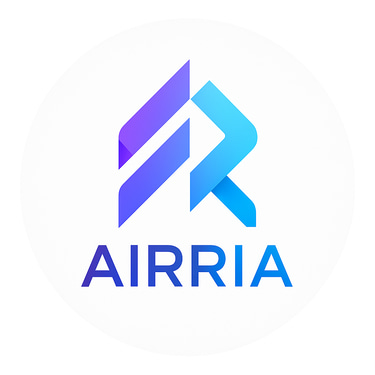Studying in Germany: A Comprehensive Guide for Indian Students
Navigate your academic journey in Germany with our detailed guide tailored for Indian students. From university enrollment and accommodation to health insurance, banking, visa procedures, and job opportunities—get all the essential information to make your transition smooth and successful.
PERSONAL
3/31/20254 min read


A Comprehensive Guide for Indian Students: Your Roadmap to Studying in Germany
Germany has emerged as a top study destination for Indian students seeking high-quality education, affordable living, and vast career opportunities. Whether you’re just starting your application process or already in Germany and adjusting to your new life, this guide walks you through the key steps—from initial registration and finding accommodation to setting up health insurance, opening a bank account, handling visa formalities after arrival, and landing a student job.
1. Registration & University Enrollment
Before you can truly call Germany your home, there are a few crucial administrative tasks:
University Enrollment:
Once you receive your admission letter, complete your registration by submitting all required documents (e.g., transcripts, language certificates, APS certificate for Indian students) to your chosen university.Local Registration (Anmeldung):
Within the first two weeks of your arrival, visit the local registration office (Bürgeramt or Einwohnermeldeamt) to register your new address. This step is mandatory for obtaining your residence permit.Residence Permit:
After registration, schedule an appointment with the local Foreigners' Office (Ausländerbehörde) to convert your student visa into a residence permit. This permit is essential for staying in Germany long-term.
2. Finding Your New Home: Accommodation Options
Finding the right place to live can make all the difference in your study abroad experience. Here’s where to start:
Student Dormitories (Studentenwohnheime):
Affordable and conveniently located, dorms are ideal for first-year students. Check your university’s Studentenwerk website for available options.Shared Apartments (Wohngemeinschaft or WG):
Living with roommates not only reduces costs but also offers a social and multicultural experience. Websites like WG-Gesucht are popular for finding shared accommodations.Private Rentals:
For more independence, consider private apartments. Platforms like Immobilienscout24 or local classifieds can help you explore listings.Tips:
Start your search early as demand is high, especially in popular cities like Berlin, Munich, or Frankfurt.
Visit local housing offices or university bulletin boards for additional leads.
3. Securing Health Insurance
Health insurance is not just a legal requirement—it’s a lifeline for ensuring your well-being while studying in Germany.
Public Health Insurance Options:
As a student under 30, you’re typically eligible for affordable public health insurance. Top providers include:Techniker Krankenkasse (TK)
AOK
Barmer
These providers offer comprehensive coverage, from doctor visits and hospital stays to prescription medications and dental care.
For Students Over 30 or in Preparatory Courses:
You might need to opt for private health insurance. Companies like DR-Walter and Feather Insurance offer plans tailored for older students or those not enrolled in a full degree program.Visa Requirements:
Initially, you’ll need travel health insurance for your visa application. Once in Germany, switch to long-term student health insurance as soon as possible.
4. Opening a German Bank Account
Managing your finances in Germany is easier with a local bank account. Here’s how to get started:
Choose Your Bank:
Options include:Deutsche Bank: Known for its widespread branches and reliable online services.
Volksbank: Offers community-focused services and competitive fees.
Commerzbank: Provides excellent support for students with tailored packages.
What You’ll Need:
A valid passport and residence permit.
Proof of address (from your Anmeldung).
University admission letter (in some cases).
Benefits:
A local bank account is essential not only for everyday transactions but also for setting up a blocked account—a mandatory requirement to prove financial means for your student visa.
5. Navigating the Visa Process After Arrival
Once you arrive in Germany, your visa process isn’t over yet:
Student Visa to Residence Permit:
Your initial visa (often valid for three months) must be converted to a residence permit. Visit the local Foreigners' Office (Ausländerbehörde) to apply.Documentation Checklist:
Ensure you have:Your passport and visa.
Proof of health insurance.
Evidence of financial means (blocked account statement or alternative proof).
University enrollment confirmation.
Timelines:
It’s important to schedule your appointment at the Ausländerbehörde as early as possible to avoid delays.
6. Landing a Student Job: On & Off Campus
Working while studying in Germany can ease financial pressures and provide valuable work experience. Here are some avenues:
On-Campus Opportunities:
Student Assistant or Research Assistant:
Universities often have part-time positions available in libraries, labs, or administrative offices.Tutoring or Language Coaching:
If you excel in a subject or language, consider offering tutoring services to your peers.
Off-Campus Jobs:
Part-Time Work:
International students are allowed to work up to 20 hours per week during the semester (or 140 full days per year). Common sectors include hospitality, retail, and IT.Internships:
Look for internships related to your field of study. Many companies in Germany offer flexible internship programs that can be part-time during the academic year.
Job Portals & University Career Centers:
Use platforms like LinkedIn, Indeed, and your university’s career service for job listings and networking opportunities.
Final Thoughts
Studying in Germany as an Indian student is an exciting and transformative experience, but it comes with its set of administrative, financial, and logistical challenges. By carefully planning each step—from registration and finding accommodation to setting up insurance, a bank account, and navigating visa procedures—you can focus more on your studies and less on the paperwork.
Remember, thorough research and early preparation are your best friends. Whether it’s joining online student communities, attending webinars, or consulting with educational experts, don’t hesitate to seek help along the way.
Embark on your journey with confidence—Germany is ready to welcome you with open arms!
Happy Studying & Viel Erfolg!

Explore
Join us on our journey to monetize content.
© 2025. All rights reserved.
